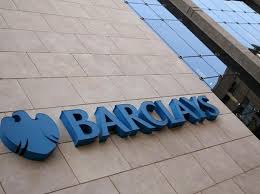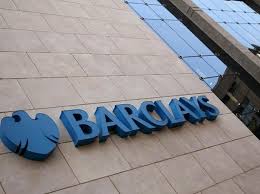
On Wednesday, Barclays beat expectations with a small increase in third-quarter profit, as strong performance in fixed income trading reduced loan loss charges and helped it recover from a costly trading error.
In July-September, the British bank earned a profit before tax of 2 billion pounds ($2.3 billion), up from 1.9 billion pounds in the same period last year and exceeding analysts' average forecast of 1.8 billion pounds compiled by the bank.
Fixed income, currencies, and commodities (FICC) revenue more than doubled year on year to 1.6 billion pounds, owing to heavy trading by clients in volatile markets.
This aided Barclays' profit growth, in contrast to Wall Street rivals, who earlier this month reported a decline as they set aside more rainy-day funds to cover borrowers' losses and turbulent markets stifled investment banking activity. more info
The increase in FICC income at Barclays contrasted favorably with that of US peers such as Morgan Stanley, which saw revenues from similar business rise 33 per cent during the same period.
Fixed income trading revenues at European rival Deutsche Bank increased 38 per cent.
Barclays' recent performance has been marred by a trading blunder that resulted in a $361 million penalty with US regulators for what they called "staggering" failures that led to the bank overselling nearly $18 billion in investment products.
The error has cost the bank hundreds of millions of pounds this year, but it did not take another hit in the third quarter, instead recording a 29 million pound gain after benefiting from a loss hedge.
According to Barclays, the net loss from the error so far this year is 600 million pounds.
The bank's results come during the most turbulent period in British politics and economy since the Brexit referendum in 2016, with Rishi Sunak appointed prime minister on Tuesday following the implosion of Liz Truss' administration.
Truss's program of unfunded tax cuts to spur growth triggered a crisis of investor confidence, causing mortgage prices to skyrocket, putting additional pressure on borrowers.
This came on top of a deteriorating cost-of-living crisis for customers, raising concerns that banks that had benefited from higher interest rates will suffer additional loan losses as a result of strained household finances.
To reflect the deteriorating outlook, Barclays set aside 381 million pounds in the quarter to cover potentially soured loans, bringing its provision for the year to 722 million.
(Source:www.latestly.com)
In July-September, the British bank earned a profit before tax of 2 billion pounds ($2.3 billion), up from 1.9 billion pounds in the same period last year and exceeding analysts' average forecast of 1.8 billion pounds compiled by the bank.
Fixed income, currencies, and commodities (FICC) revenue more than doubled year on year to 1.6 billion pounds, owing to heavy trading by clients in volatile markets.
This aided Barclays' profit growth, in contrast to Wall Street rivals, who earlier this month reported a decline as they set aside more rainy-day funds to cover borrowers' losses and turbulent markets stifled investment banking activity. more info
The increase in FICC income at Barclays contrasted favorably with that of US peers such as Morgan Stanley, which saw revenues from similar business rise 33 per cent during the same period.
Fixed income trading revenues at European rival Deutsche Bank increased 38 per cent.
Barclays' recent performance has been marred by a trading blunder that resulted in a $361 million penalty with US regulators for what they called "staggering" failures that led to the bank overselling nearly $18 billion in investment products.
The error has cost the bank hundreds of millions of pounds this year, but it did not take another hit in the third quarter, instead recording a 29 million pound gain after benefiting from a loss hedge.
According to Barclays, the net loss from the error so far this year is 600 million pounds.
The bank's results come during the most turbulent period in British politics and economy since the Brexit referendum in 2016, with Rishi Sunak appointed prime minister on Tuesday following the implosion of Liz Truss' administration.
Truss's program of unfunded tax cuts to spur growth triggered a crisis of investor confidence, causing mortgage prices to skyrocket, putting additional pressure on borrowers.
This came on top of a deteriorating cost-of-living crisis for customers, raising concerns that banks that had benefited from higher interest rates will suffer additional loan losses as a result of strained household finances.
To reflect the deteriorating outlook, Barclays set aside 381 million pounds in the quarter to cover potentially soured loans, bringing its provision for the year to 722 million.
(Source:www.latestly.com)














